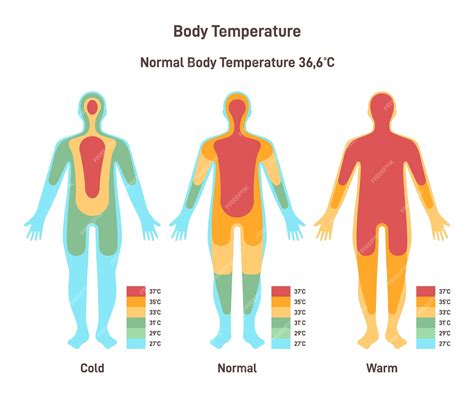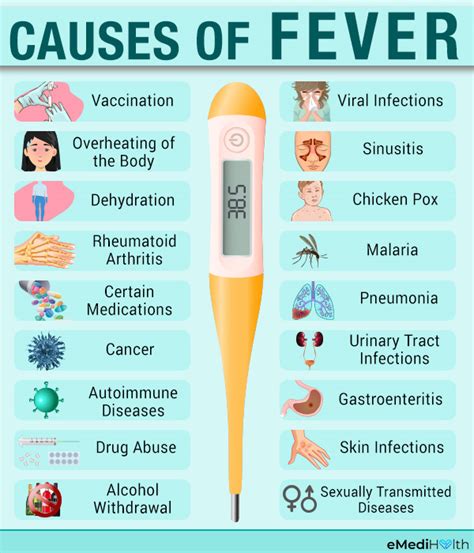Intro
Learn if 99.3 is considered a fever, understanding normal body temperature, low-grade fever symptoms, and when to seek medical attention for high fever concerns.
Determining whether a body temperature of 99.3 degrees Fahrenheit is considered a fever can depend on various factors, including the individual's age, the method of temperature measurement, and the time of day. Generally, a fever is defined as a body temperature that is higher than the normal range due to an increase in the body's thermostat. The normal body temperature range is typically considered to be around 97.7 to 99.5 degrees Fahrenheit, but it can vary slightly from person to person.
For most adults, a temperature above 100.4 degrees Fahrenheit is usually considered a fever. However, some medical professionals may consider a temperature of 99.3 degrees Fahrenheit to be a low-grade fever, especially if it is accompanied by other symptoms such as chills, sweating, or general malaise. It's also worth noting that body temperature can fluctuate throughout the day, with temperatures often being slightly higher in the late afternoon and evening.
In children, the definition of a fever can be slightly different. For infants under 3 months, a temperature above 100.4 degrees Fahrenheit is considered a fever and requires immediate medical attention. For children over 3 months, a temperature above 102.2 degrees Fahrenheit is generally considered a fever. However, if a child is experiencing symptoms such as irritability, loss of appetite, or difficulty sleeping, a temperature of 99.3 degrees Fahrenheit could be a cause for concern and warrants further evaluation.
Understanding Body Temperature

Body temperature is regulated by the hypothalamus, a small region in the brain that acts as the body's thermostat. The hypothalamus responds to changes in the body's temperature by sending signals to various parts of the body to either cool down or heat up. This complex process involves the nervous system, the circulatory system, and the sweat glands, among other bodily systems. When the body detects an infection or inflammation, it can raise its temperature as a way to fight off the invading organisms. This increase in temperature can be beneficial in helping the body recover from illness, but it can also be a sign of an underlying condition that needs medical attention.
Factors Influencing Body Temperature
Several factors can influence body temperature, including age, sex, time of day, and environmental conditions. For example, women's body temperatures can fluctuate throughout the menstrual cycle, with temperatures often being slightly higher during the luteal phase. Additionally, older adults may have a harder time regulating their body temperature due to decreased metabolism and changes in the body's thermoregulatory mechanisms.Causes of Fever

Fever can be caused by a variety of factors, including infections, inflammatory conditions, and certain medications. Some common causes of fever include:
- Viral infections such as the flu or common cold
- Bacterial infections such as pneumonia or urinary tract infections
- Inflammatory conditions such as arthritis or appendicitis
- Certain medications such as antibiotics or blood pressure medications
- Immunizations or vaccinations
It's essential to identify the underlying cause of a fever to provide proper treatment and prevent complications. If a fever is accompanied by other symptoms such as severe headache, stiff neck, or difficulty breathing, it's crucial to seek medical attention immediately.
Treating Fever
Treatment for fever typically involves addressing the underlying cause of the fever, as well as providing supportive care to help manage symptoms. This can include:- Taking over-the-counter medications such as acetaminophen or ibuprofen to reduce fever and alleviate discomfort
- Staying hydrated by drinking plenty of fluids such as water, clear broth, or electrolyte-rich beverages
- Resting and avoiding strenuous activities to help the body recover
- Using cool compresses or taking cool baths to help bring down the temperature
It's essential to note that fever is a natural response of the body's immune system, and in most cases, it will resolve on its own with rest and hydration. However, if a fever is severe, persists for an extended period, or is accompanied by concerning symptoms, it's crucial to seek medical attention.
When to Seek Medical Attention

While a temperature of 99.3 degrees Fahrenheit may not be considered a fever for most adults, there are certain situations where it's essential to seek medical attention. These include:
- If the fever is accompanied by severe symptoms such as difficulty breathing, severe headache, or stiff neck
- If the fever persists for an extended period, such as more than 3 days in adults or more than 1 day in children
- If the fever is severe, such as above 103 degrees Fahrenheit
- If the individual has a weakened immune system or underlying medical condition
- If the individual is experiencing symptoms such as confusion, disorientation, or difficulty speaking
Preventing Fever
While it's not possible to completely prevent fever, there are steps that can be taken to reduce the risk of developing a fever. These include:- Practicing good hygiene such as washing hands frequently and avoiding close contact with individuals who are sick
- Staying up-to-date on recommended vaccinations and immunizations
- Avoiding sharing personal items such as utensils, towels, or drinking glasses
- Getting plenty of rest and staying hydrated to help keep the immune system strong
By understanding the causes and symptoms of fever, as well as taking steps to prevent and treat it, individuals can reduce their risk of developing complications and promote overall health and well-being.
Conclusion and Next Steps

In conclusion, a temperature of 99.3 degrees Fahrenheit may or may not be considered a fever, depending on the individual's age, medical history, and other factors. By understanding the causes and symptoms of fever, as well as taking steps to prevent and treat it, individuals can reduce their risk of developing complications and promote overall health and well-being. If you have concerns about a fever or are experiencing symptoms that are severe or persistent, it's essential to seek medical attention to receive proper diagnosis and treatment.
We invite you to share your thoughts and experiences with fever in the comments below. Have you or a loved one ever had a fever that was difficult to manage? What steps did you take to treat it, and what were the outcomes? By sharing our experiences and knowledge, we can work together to promote health and well-being in our communities.
What is considered a fever in adults?
+A fever in adults is typically considered to be a body temperature above 100.4 degrees Fahrenheit.
How can I treat a fever at home?
+Treatment for fever at home typically involves taking over-the-counter medications such as acetaminophen or ibuprofen, staying hydrated, and resting.
When should I seek medical attention for a fever?
+It's essential to seek medical attention if the fever is severe, persists for an extended period, or is accompanied by concerning symptoms such as difficulty breathing or severe headache.
